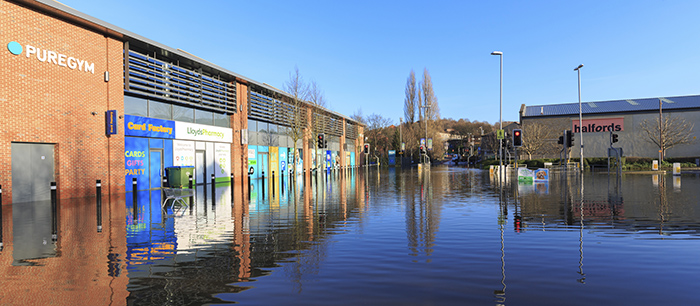Response to the UK Government’s National Flood Resilience Review
Posted on 8 Sep 2016 in Press releases

Commenting on the publication today of the UK Government’s report on the National Flood Resilience Review, Bob Ward, policy and communications director at the Grantham Research Institute on Climate Change and the Environment and the ESRC Centre for Climate Change Economics and Policy at the London School of Economics and Political Science, said:
“It is important that the Government has published its report today after being delayed to help guide communities and businesses about further measures they can take to protect themselves against potential flooding this winter. This review was launched because the Government was caught out by the flooding that occurred after record rainfall across the UK during the winters in 2013-14 and 2015-16. The Government has rightly recognised the need to ensure the resilience of vital infrastructure, including electricity sub-stations and bridges, for instance. It also deserves credit for admitting that Ministers have previously misunderstood and significantly under-estimated the probability of flooding. However, it is disappointing that the Government chose to ignore surface water flooding during the review, even though it poses a threat to more properties in the UK than does coastal and river flooding. Indeed, the summer 2007 floods, which caused more than £3 billion in damage, was mainly caused by surface water.”
“This review has focused on short-term measures to tackle flood risk. It is important the Government also develops a long-term strategy for managing flood risk, as recommended by the independent expert Committee on Climate Change.”
“It is also important that the Government has acknowledged that climate change is increasing flood risk in the UK, which is becoming warmer and wetter. The eight warmest years on record have occurred from 2000 onwards, during a period when we have also experienced six of the seven wettest years. A warmer atmosphere can hold more water, which results in heavier rainfall. The Met Office has pointed out that bouts of heavy rainfall are becoming more frequent in the UK. This means that the risk of river and surface water flooding due to heavy rainfall is increasing. In addition, global sea level rise is increasing the probability of flooding along the UK’s coasts. The Government, businesses and communities need to understand how these risks are changing and take them into account in flood resilience plans for the future. Denial of these risks due to climate change would put the lives and livelihoods of millions of people under threat.”
For more information about this media release, please contact Bob Ward on r.e.ward@lse.ac.uk
NOTES FOR EDITORS
- The ESRC Centre for Climate Change Economics and Policy (http://www.cccep.ac.uk/) is hosted by the University of Leeds and the London School of Economics and Political Science. It is funded by the UK Economic and Social Research Council (http://www.esrc.ac.uk/). The Centre’s mission is to advance public and private action on climate change through rigorous, innovative research.
- The Grantham Research Institute on Climate Change and the Environment (http://www.lse.ac.uk/grantham) was launched at the London School of Economics and Political Science in October 2008. It is funded by The Grantham Foundation for the Protection of the Environment (http://www.granthamfoundation.org/).


